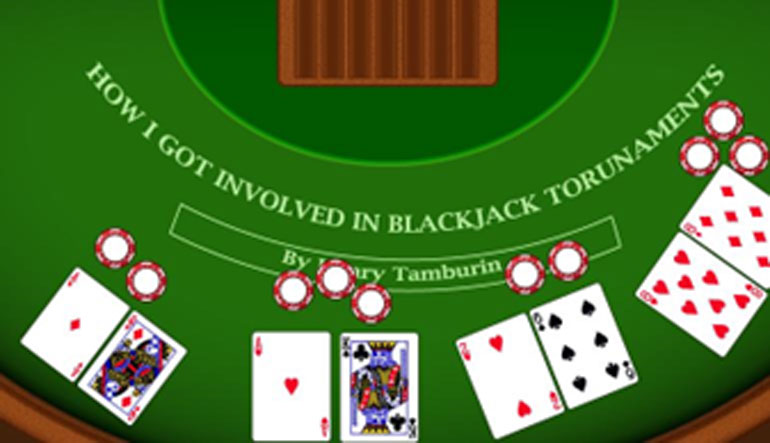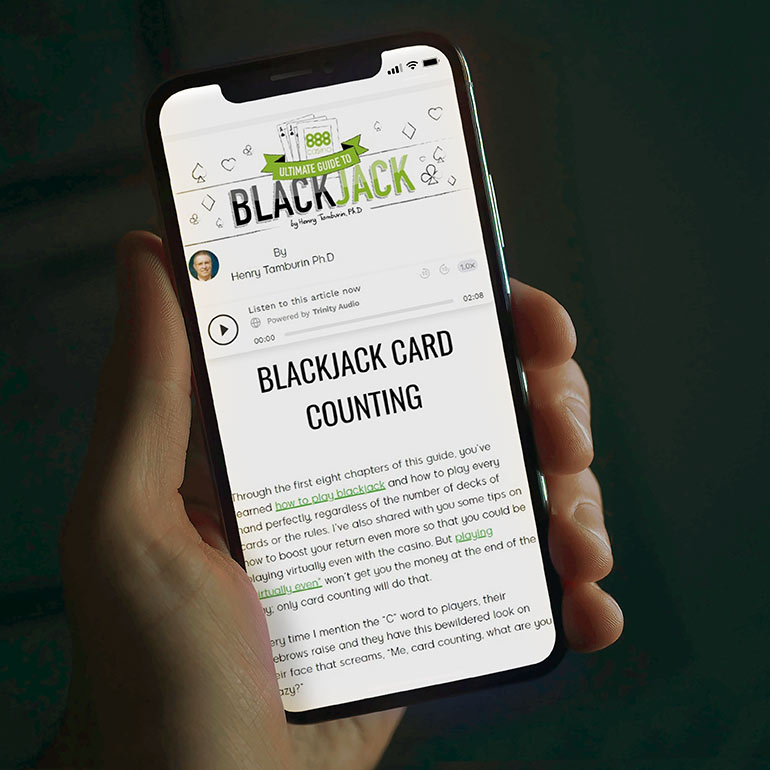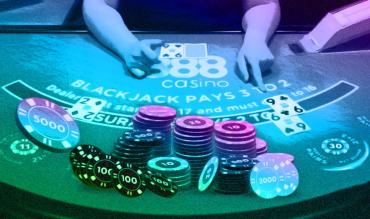- Blackjack is not a team sport. In the long run, the bad play of other players does not affect the house edge against you.
- A player should focus on seven important factors before taking a seat at a blackjack table to maximize his or her long-term results.
- If you don’t know the background of the people offering advice on blackjack playing strategy in print or on the Internet, I’d suggest you google their names to find out if they are reputable players, authors, or better yet, respected blackjack mathematicians.
Several years ago, I wrote an article that contained misinformation about blackjack that originated from players, dealers, movies, and the Internet. I thought I had heard and read all the nonsensical misconceptions about blackjack that have been spoken or written over the past 50 years; however, I was wrong, dead wrong.
That’s because I recently received a print magazine published in the USA for casino players that contained an article on blackjack strategy, which floored me.
Bad advice
The author wrote about a “few golden rules that have made a big difference in how I play from a strategic point of view.” Here is some of the author’s “wisdom.”
“To get started, you need to understand that it is a fact that each player at a blackjack table has a significant role in how the game will go. … The first thing to consider when taking a seat at a blackjack table is where you want to sit and what responsibility you want to hold at the table. The first seat (first base) and last seat (third base) of the table pretty much determine the way the game will go down. If these two players do not know the basic strategy rules of the game, then the odds will be altered for every player at the table.”
The author continues with more incredibly wrong advice, such as the following.
“First base sets the tone for the whole table. If the dealer has anything between 3 and 6 showing, the table should not take any unnecessary cards that could end up being the dealer’s bust card needed for the dealer.”
To say I was flabbergasted about what the author had written, and the publisher who published it, is an understatement. I also felt sorry for blackjack players who read this article believing the above “strategy advice” was accurate. I’ve already emailed the publisher of the magazine about the article; now I intend to state the facts about what a player should know before taking a seat at a blackjack table.

Setting the record straight
Let me begin with the misconception that players who misplay their hands (i.e., do not use the basic playing strategy) will “alter the odds for every player.” The fact is this:
- Blackjack is not a team sport. In the long run, the bad play of other players does not affect the house edge against you.
Don’t believe me? Take a gander at these studies done by two different blackjack experts.
My friend Michael Shackleford, who is recognized internationally as an expert on the mathematical analysis of casino games including blackjack, conducted a random computer simulation to “prove the myth that bad players cause other players to lose at a higher rate in blackjack.” He published the results on his own website.
Shackleford programmed his software to, what were then, standard liberal Vegas Strip rules. This included: six decks; dealer stands on soft 17; double on any first two cards allowed; double after pair splitting allowed; late surrender allowed; and the player may resplit to four hands, including aces.
In the first 1.6 billion computer-simulated rounds, two players followed the correct basic playing strategy on every hand. The player who acted first had an expectation of –0.289%, and the second player’s expectation was
–0.288% (both essentially the same, as expected).
In the second 1.05 billion-hand simulation, the first player followed the same correct basic playing strategy, while the second player to act (call him the clueless player) followed the same strategy except for these idiotic plays:
- always hit 12 to 16
- always double 9 to 11
- split any pair
- never surrender
- never soft double
I trust that you agree that this represents a clueless blackjack player. According to the author of the magazine article, the expectation of the player playing correctly should be much worse due to the poor play of the other player. Yet, this was the result of Shackleford’s second study.
- The clueless player's expectation decreased to –11.26%, which was expected because of his foolish play.
- However, the expectation of the basic strategy player was –0.282%, which is essentially unchanged.
This proves, without any doubt, that the poor play of another player will not alter your long-term expectation (or odds of winning) when you play blackjack.
Selective memory
Yes, but I know what many of you are probably thinking right now. It’s along the lines of something like this.
“Last week when I played blackjack, a clueless player on third base hit his 14 against a dealer four upcard and drew a picture card and busted. The dealer subsequently flipped over her downcard, which was a 10 giving her 14. The next card she drew was a seven for a 21, which beat the table. If that moron on third base would have stood on his 14, like he was supposed to, the dealer would have gotten the picture card and busted, and we would have all been winners.”
Unfortunately, most casino players have “selective memory.” They’ll remember losing one (or more) hands as the result of another player’s misplaying his or her hand. Moreover, some players will berate the third-base player for making a boneheaded play.
However, suppose the two cards in the shoe were reversed; namely, the third-base player took a hit and received the 7 for a 21, and the dealer subsequently received the picture card and busted.
Would any of the players congratulate the third-base player for “saving the table by hitting his 14”? I doubt it. This is what I mean by selective memory. You remember the “bad beats” that sometimes occur when you play blackjack, and you want to blame someone for your losses. However, the fact is this:
- Every time a player misplays his hand, 50% of the time it could “hurt” other players and 50%, it could “help” them. In the end, it’s a wash, meaning statistically bad players do not change the odds or the house edge against a basic strategy player.

Another example
Still not convinced? My friend Fred Renzey, author of the excellent Blackjack Bluebook II, also did a study about “bad players hurting basic strategy players,” and published it in his book. His study didn’t involve billions of computer-simulated hands, rather Renzey dealt 500 rounds of blackjack at home with him at first base and the mythical “player from hell” at third base. He did not specify the number of decks of cards he used or the playing rules, but that did not affect the conclusion of his study.
Renzey played all 500 of his hands with perfect basic strategy, while misplaying every one of the third-base player’s hands. That included some horrendous misplays such as hitting a 16 against dealer 5, always splitting 5s and 10s, and other idiotic bad plays.
He meticulously recorded the result of each hand (win, loss, or push). Then he reviewed the cards to see how he would have made out if the third-base player had played his hand correctly. When Renzey compared the results, he concluded the following: “There was nothing in the 500 hands that made it appear as if the third-base player’s horrendous play tended to hurt somebody else's result.”
You can review the statistics on the number of hands won, lost, and pushed when the third-base player played correctly, and incorrectly, in Chapter 4 of his book. However, keep this in mind: most statisticians would argue that it isn’t really very statistically meaningful to make any conclusions based on just 500 hands.
Bottom line
Players shouldn’t worry about whether the first- or third-base player knows basic playing strategy because it doesn’t affect a player's long-term expectation one iota. Instead, a player should focus on the following before taking a seat at a blackjack table to maximize his or her long-term results.
The payout for a blackjack hand. Never sit at a blackjack table where a blackjack pays 6 to 5 or even money. Only play where you receive a 3 to 2 payoff for a blackjack.
- The playing rules of the game. You want a decent mix of player-favorable rules. For example: dealer standing on soft 17; being able to double down on any two cards; and doubling down after pair splitting allowed.
- The number of decks of cards. The fewer the number of decks, the better for the player, assuming the playing rules are still favorable and a blackjack pays 3 to 2.
- The number of players seated at the table. More players means fewer rounds dealt per hour, which will reduce your hourly theoretical loss.
- The minimum and maximum betting limits. If you have a limited bankroll, you need to play at a lower-minimum table to avoid losing your bankroll too quickly.
- Having a strategy card with you to be sure you play every hand correctly. Your best chance to have a winning session, or at best to lose less or play longer, is to play every hand perfectly by following the basic playing strategy.
- Ignoring how your fellow players play their hand. Instead, focus on the cards that are being played on every round. If you observe a greater number of small versus big cards being played in previous rounds, this means you can expect more big cards to be dealt in future rounds, which is a player-favorable situation and therefore you should consider betting more.
Final Tip
Below is what I wrote in my previous article about blackjack misinformation, and it certainly is true about the article in the magazine.
If you don’t know the background of the people offering advice on blackjack playing strategy in print or on the Internet, I’d suggest you google their names to find out if they are reputable players, authors, or better yet, respected blackjack mathematicians. Otherwise, you might be reading a whole lot more misinformation about the game.
Note: If you would like to read more factual advice on blackjack, I’d suggest you read my Ultimate Blackjack Strategy Guide.
